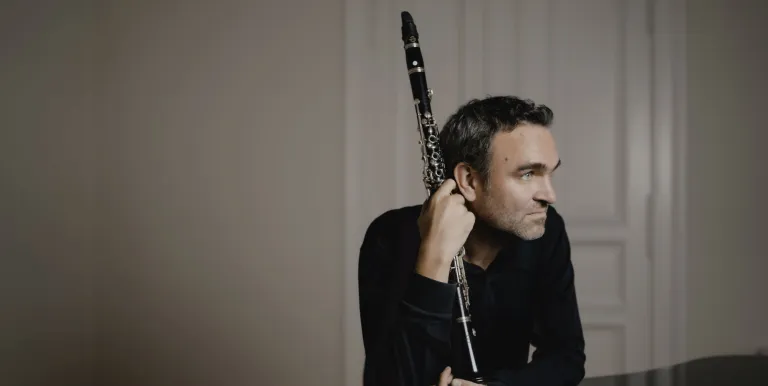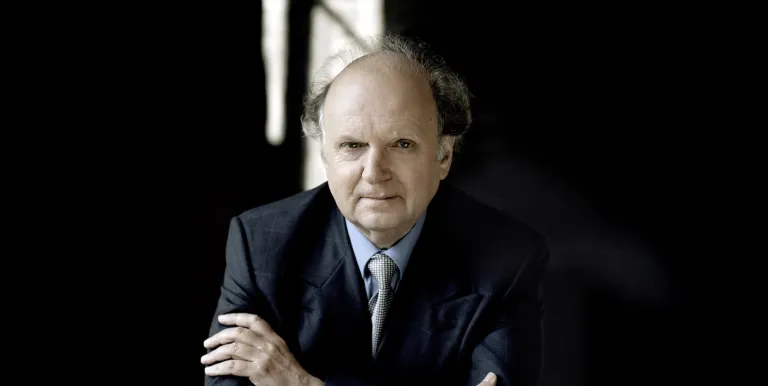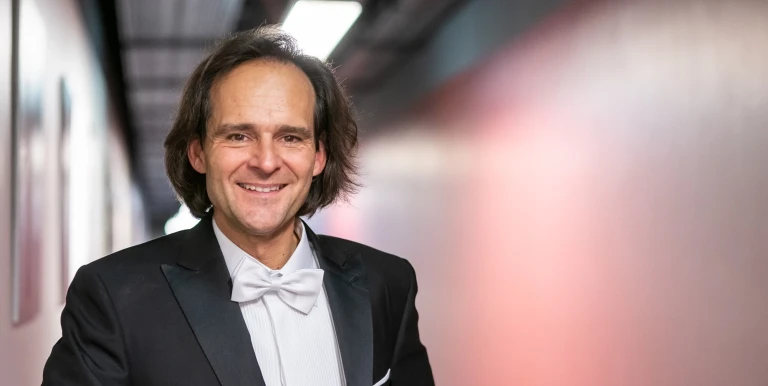one interval
Conductor:
Featuring:
J. S. Bach
Orchestral Suite No. 4, BWV 1069
Ligeti
Mysteries of the Macabre
Brahms
Symphony No. 3 in F major, Op. 90
The musicians of the Festival Orchestra will kick off by playing a Bach suite on period instruments, followed immediately by a set of showpiece arias for coloratura soprano from György Ligeti's avant-garde "anti-opera” performed by the award-winning German soprano Anna-Lena Elbert, who is still in her late twenties. Finally, after these visits to the extremes will come a kind of synthesis to close the evening: the bittersweet, far more reserved and conservative Brahms symphony - how could a concert programme be more colourful?
Bach's last orchestral suite is a perfect opener; the composer labelled the entire work "Ouverture” with good reason. The first movement invokes the dotted notes and sublime atmosphere of overtures to French operas - with a bit of Italian seasoning. Then, in line with the style of the period, comes a series of conventional dances.
The Chief of Gepopo, the secret police of Brueghelland, warns Prince Go-Go that the intelligence service has discovered a giant comet approaching on a trajectory that will destroy the planet. Due to the messenger's fear and paranoid hysteria, the coded message becomes almost incomprehensible. Le Grand Macabre, Ligeti's only opera, is an absurd caricature, full of sarcastic wit and virtuosic grotesqueness. This is especially true for the Gepopo arias, which have been performed as an independent concert piece since 1991. The wails of the Chief of Gepopo, desperately singing about the end of the world, is an extremely difficult technical task for the soprano; the chamber orchestra, sometimes operating as a choir, accompanies the cries for help with similar virtuosity.
Brahms's Third Symphony is often likened to Beethoven's Eroica, even though Brahms's hero is totally different in character. The frequent transitions to a minor key from the basic F major key and the conflicts of the first movement suggest that here the protagonist is mainly fighting with himself. The ominous endings of the individual movements, the gloomy, slow response given to the slow movement (in place of a dance movement), and the gradually hushed ending of the finale turn the usual heroic march, instead of a triumphant conclusion, into a psychological drama.
Presented by: Budapest Festival Orchestra
-
We wish to inform you that in the event that Müpa Budapest's underground garage and outdoor car park are operating at full capacity, it is advisable to plan for increased waiting times when you arrive. In order to avoid this, we recommend that you depart for our events in time, so that you you can find the ideal parking spot quickly and smoothly and arrive for our performance in comfort. The Müpa Budapest underground garage gates will be operated by an automatic number plate recognition system. Parking is free of charge for visitors with tickets to any of our paid performances on that given day. The detailed parking policy of Müpa Budapest is available here.












